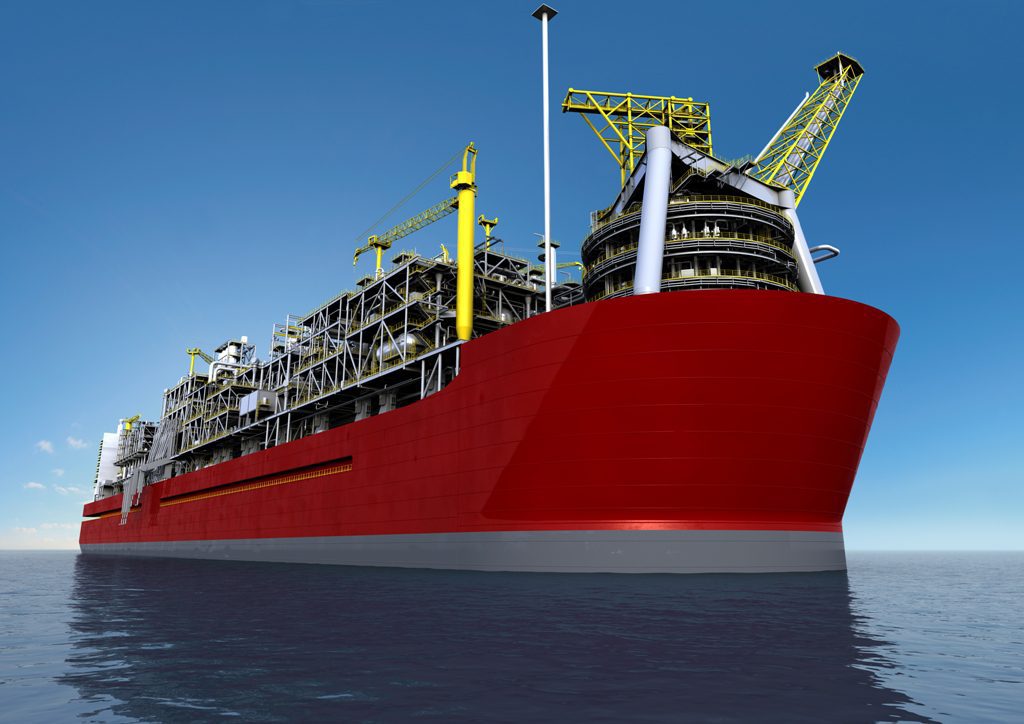With oil production in Guyana set to hit 600,000 barrels per day (bpd) next year and cross the one million bpd mark by 2027, monetizing the large volumes of associated gas discovered to date at the ExxonMobil-operated Stabroek Block is of growing interest to the government. But finding the right solution may not be straightforward, based on some key factors such as the liquid content in the gassier fields in the block.
Guyana surpasses 100 million barrels of oil production in first nine months of 2023
President of ExxonMobil Guyana, Alistair Routledge, recently told S&P Global that the focus has been on developing “the black oil neighborhood of the Stabroek block” from the 11 billion barrels of oil equivalent discovered to date. “These are very flat reservoirs … so in order to optimize the sweep through the reservoir, we’re looking for that immiscible front of water and gas that’s pushing the oil through the reservoir,” he said, while acknowledging the need for gas sales options for later development of the gassier fields.
The Liza field currently produces around 580 MMcf/d of gas of which over 500 MMcf/d is reinjected. The remainder is used primarily to power the massive oil production vessel operations offshore. Reinjection of gas, along with water, has been key to maximizing oil production, in line with the agreement Exxon has with the government.
Much of the gassier fields have been found farther east near the border with Suriname where high variability of the fluids both laterally in different reservoirs, but also vertically, is evident. “We have stacked reservoirs, and you can see different fluid mixes in different reservoirs,” Routledge pointed out.
He said it was “early days” in reaching a gas export solution, but the liquid content in the gassier fields would likely prevent straightforward deployment of a floating LNG facility along the lines of Mozambique, where ExxonMobil has used the technology at Coral, a field producing dry gas. One option is a floating LNG facility in combination with a liquids production facility, he said.
“We will have to have a production facility that just separates liquids and gas and handles probably tens of thousands of barrels a day of liquids production,” he told S&P Global. “But do you then have a floating LNG facility next to a [liquids] production facility? Do you have that in shallow water? Do you have it onshore? We’re looking at all of those kinds of concept options.”
Notwithstanding these challenges, the Guyanese government says it wants ExxonMobil to move faster on the matter of developing the country’s growing gas assets.
“We are not pleased with the pace at which they want to approach the development of the gas assets,” Vice President, Bharrat Jagdeo told reporters last month. “I think they are more interested in oil and so my personal assessment is that they’re not treating our desire to monetise the gas assets with the same sense of urgency as they do [with] oil.”
Guyana invites consultations on gas monetization strategy
During 2022, deemed Exxon’s best exploration year, the company added considerably to Guyana’s gas reserves, with the Barreleye, Sailfin, Lau-Lau, Patwa and Kiru Kiru wells estimated by Westwood Group to have more gas than oil.
Arthur Deakin, Director of Energy Practice at Americas Market Intelligence, has said that Guyana’s gas resources can form part of the solution to the gap created by Russia in Europe when the war in Ukraine caused the two sides to fall out. Deakin said Guyana’s exports could replace about 4% of all Russian gas that went to Europe in 2021.



